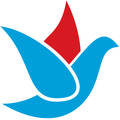Post-traumatic Integration – Low-level Psychosocial Support and Intervention for Refugees
Although the massive migration movement that has brought in 2015 more than one million refugees into European countries has become smaller, it can be expected that many refugees will continue to arrive in Europe in the years to come. This huge task requires not only additional budgets for registration, accommodation, food, medical care and education, but also a large work force. While some of these workers have the respective professional background as psychologists, social workers etc., the overwhelming part of people working with refugees, especially in the NGO and voluntary sector, have their administrational, or other professional background and just their good will to help. But sometimes “well meant is the contrary to good”.
This aspect is especially important when we take into consideration that 50 percent of the refugees who arrive in Europe are experiencing psychological distress and mental illness resulting from trauma. As many as half of those refugees could be suffering from posttraumatic stress disorder (PTSD). However, Post-traumatic problems are often overlooked, simply because most so-called first-liners – people in direct contact with arriving refugees and asylum seekers - are not aware of them.
The objective of our project is therefore to raise the awareness about the occurrence of post-traumatic stress disorder (PTSD) among refugees and asylum seekers, its symptoms and possibilities for early low-level mental health interventions, and to support the continuing professional development of refugee educators (such as teachers, trainers, mentors, etc.) and youth workers, especially because they will have to deal with an increasing number of learners with PTSD symptoms.
In order to reach this objective, the project will develop awareness raising, information, learning materials and first-line management recommendations for non-specialist refugee-care providers, teachers and trainers in order to enable them to give low-level psychosocial support and early low-level mental health interventions to refugees which will help to promote their effective integration.
The most important outputs of the project will be
Awareness Raising Guidelines will be developed as simple, practical tool to support and inform in a comprehensive way people working with refugees with traumatic backgrounds about aspects that have influence on their mental state, and long-term effects of psychological distress.
Action Sheets will contain recommendations and key actions for meeting the needs of refugee and migrant clients, brief modules on the assessment and management of PTSD, dealing with challenging behaviour of clients, intervention and delivery design, and key findings from the research.
The e-platform will support the delivery of all online tools of the project and will also support online interactive tools such as forums, blogs, and social networking applications.
Selected online materials from Guidelines and Action Sheets will be transferred in a pedagogically sound way into integrated apps for smartphones




